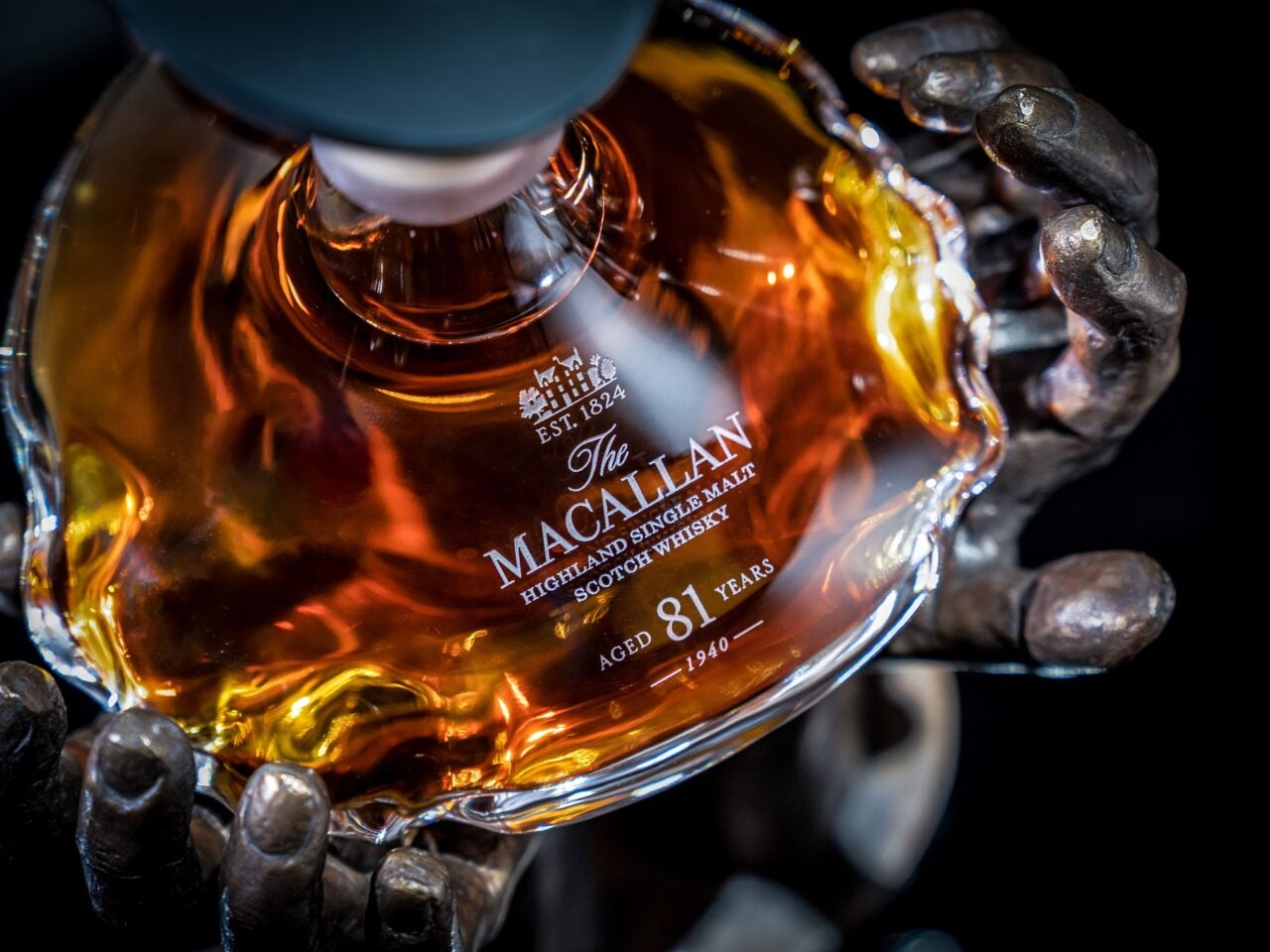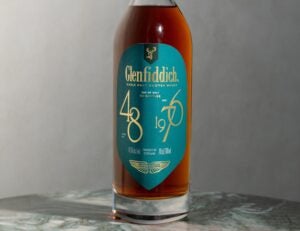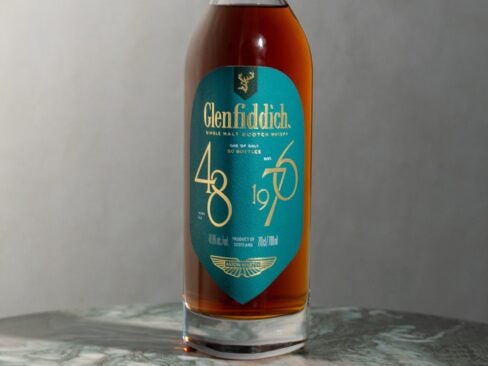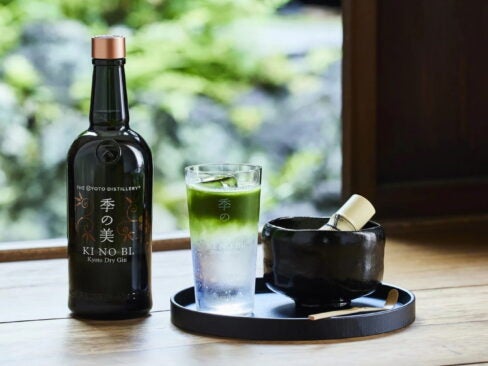The historical rivalry between Irish whiskey and Scotch whisky extends right back to the origins of the spirit. Today, there is still debate over which Celtic tribe first distilled whiskey (Scotch whisky famously spells it without the ‘e’). The first mention in Scottish literature dates back to an Exchequer Rolls from 1495, where malt was sent, by order of the king, to make aquae vitae (water of life), “enough for 500 bottles”. However, a 17th century Annals of Clonmacnoise attributed the death of a chieftain in 1405 to overdrinking at Christmas. While its origins may never be discovered, what is inarguable is that today Scotch whisky is the dominant force over Irish whiskey.
[See also: The Difference Between Bourbon and Rye Whiskey]
History of Irish Whiskey and Scotch
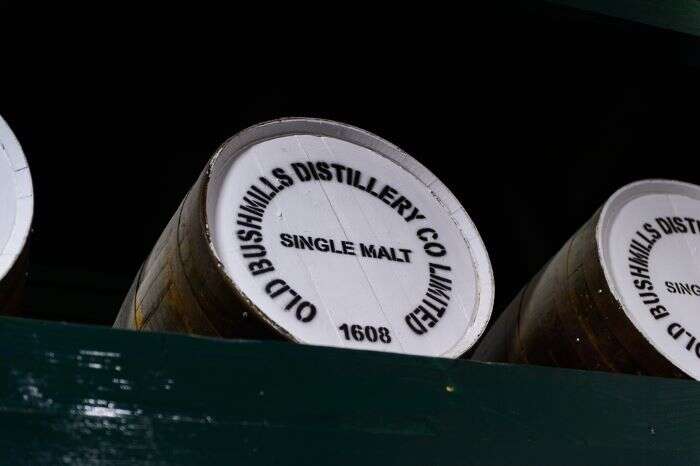
Although the jury might still be out on who gave birth to the strong stuff, what can be agreed is that both countries have a long and distinguished pedigree of producing world-class whiskey. Ireland is home to Bushmills, the world’s oldest licensed whiskey distillery, with the Antrim producer’s official records stretching back to 1609; a whole 165 years before Scotland’s disputed first distillery, The Glenturret.
But official openings don’t give us the full picture, and in actual fact, the first official record of Irish whiskey is from 1405, much to the upset of the Scots, whose earliest written evidence is nearly 90 years later in 1494. Truth be told, whiskey production was widespread in both countries hundreds of years prior to this.
Although Ireland was once the world’s dominant producer, all that changed with a string of 20th century events that would nearly wipe out the Irish industry – namely the Irish War of Independence and the hefty export tariffs and restrictions that followed, not to mention two world wars as well as US prohibition. By 1980, there were just two functioning distilleries left on the entire island of Ireland. The 20th century was a very different story for Scotch, and by 1994 Scottish whisky exports were worth a record $2.8 billion.
Ireland has bounced back in recent years and has re-established itself as a global player, with 18 distilleries and counting, though there’s still a long road ahead to catch up with Scotland’s 130.
Defining characteristics of Scotch vs Irish Whiskey
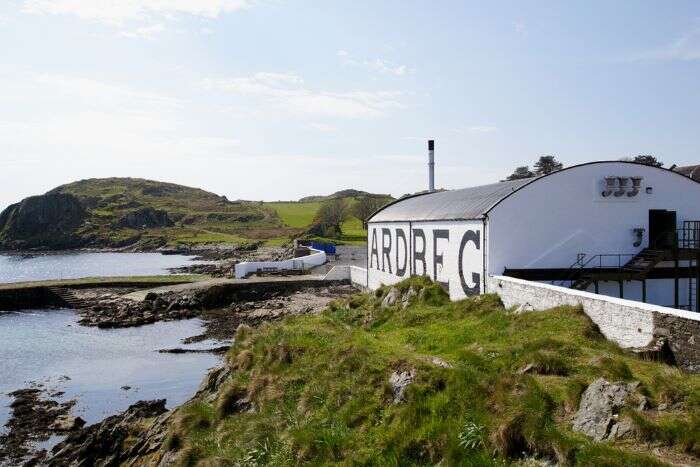
There are a handful of key rules that all distillers must abide by to be granted the protected titles of either Scotch or Irish whiskey.
It won’t come as a surprise that by law, Scotch whisky must be distilled and matured in Scotland. Furthermore, the maturation process must take place in oak casks for at least three years and the whisky bottled at a minimum strength of 40% ABV.
Irish whiskey has nearly the same requirements but of course must be produced on the island of Ireland and can be distilled on either side of the border. The notable exception between Irish whisky vs Scotch is that Irish whiskey can be matured in casks made of woods other than oak. This can seriously influence the flavor profile, but the majority opt for oak due to its hard-wearing and porous nature.
Not so much a rule, more a tradition, Irish whiskey tends to be triple distilled, giving it what some consider a smoother, more accessible taste than its Scottish counterpart, which is generally distilled twice. There are exceptions, however, with Lowland Scotch brand Auchentoshan (whose founders are said to be Irish) producing triple-distilled whisky and Irish single malt The Tyrconnell distilled just twice.
Types of whiskey
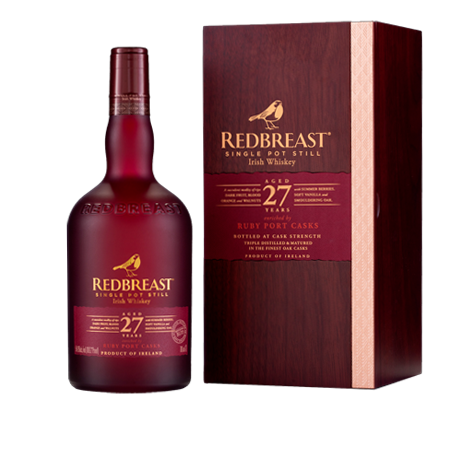
Both nations offer their own takes on single malts, single grains and blends, but where the Emerald Isle goes it alone is its single-pot-still whiskey (named after the copper pot the whiskey is distilled in).
This uniquely Irish style of whiskey is similar to a single malt in that it is produced in one distillery, but where a single malt is made using 100% malted barley, single-pot-still whiskey combines malted and unmalted barley. The raw barley generates its distinctively rich and somewhat spicy character.
[See also: Behind Midleton Very Rare’s Dair Ghaelach Series]
However, a great taste wasn’t the key motivating factor behind the creation of single-pot-still whiskey – more of a lucky coincidence. Like so often in whiskey’s checkered history, it came down to cold, hard cash, with the Irish creating the variety in the 18th century to avoid paying skyrocketing taxes on malted barley. Today it has achieved global popularity, with acclaimed single-pot-still whiskey brand Redbreast standing proudly as one of the most highly decorated Irish whiskeys.
Taste the difference between Scotch whisky vs Irish whiskey
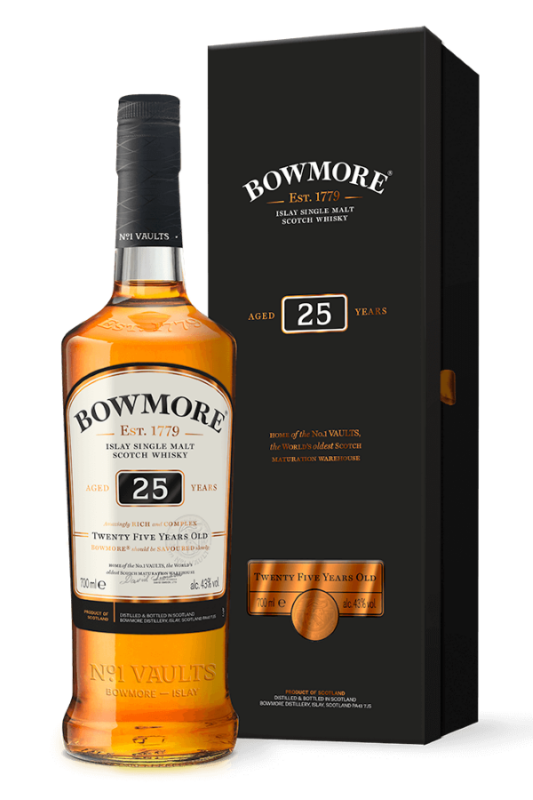
For most, the proof of the pudding is in the eating, or in the drinking in this case. So what are the differences between Irish whiskey and Scotch when it comes to taste?
Of course, Irish pot still whiskey has a unique flavor; Redbreast’s 27 Year Old is its oldest permanent expression and is one of the finest on the market. Matured in bourbon, sherry and ruby port casks, it has a nose of vanilla and exotic fruit, followed by a luxuriously rich taste including plum, cherry and mature wood. Brands like Greenspot and Dingle are also rising up the ranks.
When it comes to Irish single malt and Scottish single malt, the biggest difference you’ll notice when it hits your taste buds comes from the number of distillations. Typically, doubly distilled Scotch whisky is more fiery than Irish whiskey, which is mellower in taste. Speaking of fire, another difference is the absence of peat in Irish whiskey production. Scotch, predominantly that from Islay, is famed for its earthy, smoky taste, achieved from burning peat to dry the barley in the malting process. Peat is all but absent from Irish whiskey (with the exception of Connemara single malt). Excellent examples of Scottish peated whisky are Ardbeg, Bowmore and Lagavulin, all renowned for their powerful single malts.
Prestige
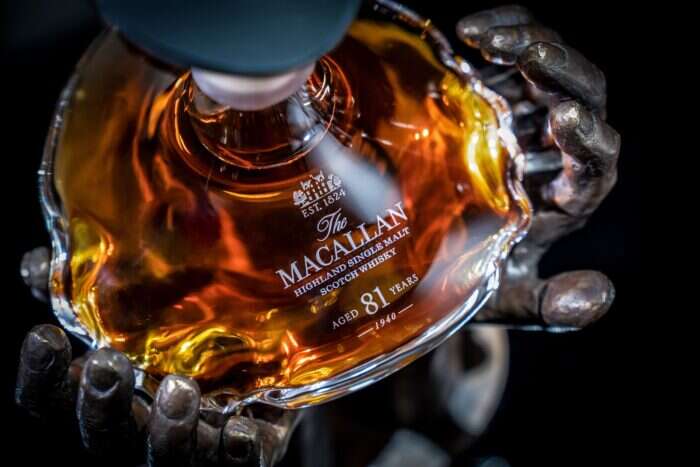
Both Irish whisky and Scotch whisky have become the object of desire for collectors and investors alike in the 21st century. Sought-after bottles have dramatically increased in value, transforming them into commodities. The most collectible Scotch whisky brand is The Macallan, which also holds the title for bottling the oldest whisky. The Reach 81 Year Old was released to much acclaim in 2022. Limited to just 288 decanters, one bottle of The Reach recently fetched over $350,000 at auction. It’s original SRP was $125,000.
However, the most valuable recent bottling has hailed from the Emerald Isle. The Craft Irish Whiskey Co released an extremely limited set that included a bottle of rare Irish whiskey, a Faberge Egg and a Faberge watch. With just seven sets available, one sold for an astonishing $2m, technically making it the most expensive single bottle of all time.





